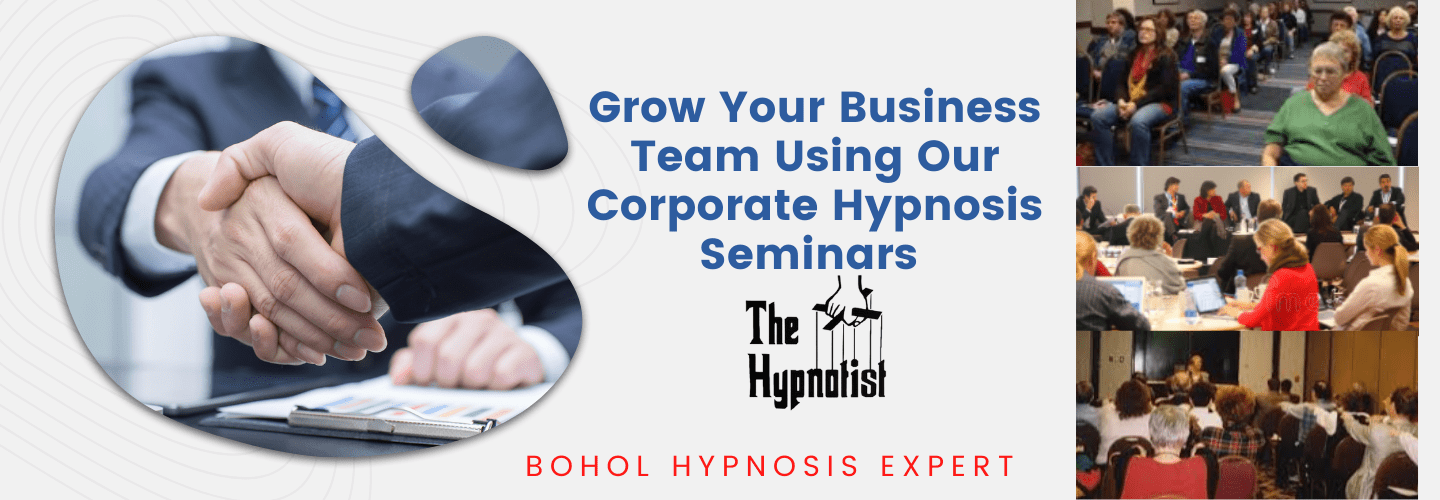
Hypnosis, EFT, and NLP offer powerful tools to conquer surgical fears. Hypnosis induces relaxation and reshapes negative perceptions. EFT taps into emotions, fostering a positive mindset. NLP provides strategies to reframe anxieties and anchor positive emotions. Preparing mentally can ease fears. Effective communication with healthcare providers offers crucial support. Real-life success stories emphasize the transformative impact of these techniques. Integrative therapies provide holistic healing. Discover how these practices can help you overcome surgical fears and phobias.
The Power of Hypnosis
Harnessing the potential of hypnosis can offer individuals a transformative tool in overcoming their fear or phobia of surgery.
Hypnosis is a technique that induces a state of deep relaxation, allowing the subconscious mind to be more receptive to positive suggestions and changes. Through this powerful relaxation, individuals can access their subconscious minds and work towards transforming their fears or phobias associated with surgery.
During a hypnosis session focused on surgery fears, a trained practitioner guides the individual into a state of heightened focus and suggestibility. Through carefully crafted scripts and techniques, the individual can address the root causes of their fear, reframe negative thought patterns, and instill a sense of calm and confidence regarding the upcoming surgical procedure.
This process of subconscious transformation can lead to a significant reduction in anxiety levels and an increased sense of control over one's emotions and reactions towards surgery.
Transforming Fear With EFT

Individuals experiencing fear or phobia of surgery can find relief and empowerment through the practice of Emotional Freedom Techniques (EFT). EFT benefits those struggling with fear by providing a structured approach to address and transform these emotions. This technique involves tapping on specific meridian points on the body while focusing on the fear or anxiety related to surgery. By doing so, individuals can release the emotional intensity associated with their fears, leading to a sense of calm and control.
One of the key benefits of EFT is its ability to help individuals reframe their perceptions of surgery. Rather than viewing it as a source of fear and anxiety, EFT enables individuals to approach the surgical experience with a more positive and empowered mindset. Through consistent practice, EFT can aid in the transformation of fear into a sense of readiness and resilience. By harnessing the power of EFT, individuals can navigate their fears surrounding surgery with greater ease and confidence.
NLP Techniques for Anxiety

For individuals experiencing anxiety surrounding surgery, utilizing NLP techniques can offer valuable tools for relief. By incorporating calming practices within NLP, it becomes possible to manage and alleviate anxiety effectively.
Embracing NLP strategies provides a practical approach to addressing and reducing anxiety levels associated with surgical procedures.
NLP for Anxiety Relief
Utilizing Neuro-Linguistic Programming (NLP) techniques can be an effective approach in alleviating anxiety associated with surgery. NLP for anxiety relief focuses on anxiety management and emotional freedom. Through NLP techniques, individuals can reframe their thoughts, beliefs, and behaviors to reduce anxiety levels.
By addressing the root cause of anxiety and restructuring thought patterns, NLP empowers individuals to manage their emotions more effectively. Techniques such as visualization, anchoring positive emotions, and reframing negative self-talk are commonly used in NLP for anxiety relief. These tools provide practical ways to shift focus, promote relaxation, and cultivate a sense of calmness before undergoing surgery.
NLP offers a holistic approach to anxiety relief, enabling individuals to navigate their emotions with greater ease and confidence.
Calming Techniques With NLP
To cultivate a sense of calmness and alleviate anxiety before surgery, exploring calming techniques with Neuro-Linguistic Programming (NLP) can offer valuable tools for emotional management.
The mind-body connection plays an essential role in NLP techniques for anxiety relief. By incorporating relaxation techniques such as deep breathing and progressive muscle relaxation, individuals can create a state of relaxation that positively impacts their emotional well-being.
Cognitive reframing is another powerful tool in NLP, helping individuals shift their perspective on surgery from fear to a more positive outlook. Visualization exercises can also be beneficial, allowing individuals to visualize a successful surgery and a smooth recovery process.
Managing Anxiety Through NLP
Amidst the emotional turbulence that can accompany the prospect of surgery, employing Neuro-Linguistic Programming (NLP) techniques provides a structured approach to managing anxiety effectively. NLP tools offer practical strategies to address anxiety by reshaping thought patterns and behaviors. Techniques such as reframing negative beliefs, anchoring positive emotions, and utilizing language patterns can help individuals navigate their anxiety surrounding surgery.
Overcoming Surgical Phobias

Addressing and conquering surgical phobias requires a proactive and tailored approach that focuses on understanding and managing individual fears and anxieties. Pre-surgery preparation plays an important role in easing anxiety levels.
Mindfulness techniques, such as deep breathing and meditation, can help individuals stay grounded and reduce stress before the procedure. Visualization exercises are also beneficial in mentally preparing for surgery by envisioning a successful outcome and a smooth recovery process.
Coping strategies, like positive self-talk and seeking support from loved ones or a therapist, can provide comfort and reassurance during the challenging time leading up to surgery. It's essential for individuals to communicate openly with their healthcare providers about their fears and concerns to receive the necessary support and guidance.
Case Studies and Success Stories

Real-life transformations through overcoming surgical anxieties with mind-body techniques showcase the power of resilience and determination in conquering fear.
These success stories provide a beacon of hope for those grappling with the challenging prospect of surgery, illustrating that healing is not only physical but also deeply rooted in mental strength.
Real-life Transformations
Witnessing the remarkable transformations in individuals who have overcome their fear or phobia of surgery serves as a beacon of hope for those currently grappling with similar anxieties. These real-life stories showcase the power of mind-body healing and emotional freedom in overcoming surgical fears.
For instance, one individual who underwent hypnosis sessions reported feeling a profound sense of calmness and control leading up to their surgery, enabling them to face the procedure with confidence. Another person, after practicing EFT techniques regularly, expressed a significant reduction in their fear of surgery, allowing them to approach the operation with a newfound sense of courage.
These success stories highlight the potential for individuals to conquer their surgical anxieties and emerge stronger on the other side.
Overcoming Surgical Anxieties
Having conquered their fear of surgery, these case studies and success stories offer invaluable insights into overcoming surgical anxieties. Pre-surgery preparation plays a pivotal role in easing anxieties. Patients can benefit from relaxation techniques such as deep breathing exercises or guided imagery to calm their minds before the procedure. Coping strategies are another essential aspect of managing surgical fears. Techniques like mindfulness, positive affirmations, and seeking support from loved ones can help individuals navigate through their anxieties effectively.
Additionally, visualization techniques have shown promising results in reducing pre-surgery stress. By picturing a positive outcome and focusing on feelings of calmness, patients can shift their mindset towards a more optimistic outlook, promoting a sense of control and confidence as they approach the surgery.
Healing With Mind-Body Techniques
Exploring the utilization of mind-body techniques in the context of healing from surgical anxieties reveals profound insights and success stories in enhancing patient outcomes.
The mind-body connection plays a vital role in holistic healing, where techniques like hypnosis, EFT, and NLP can empower individuals to overcome their fears and anxieties related to surgery.
Case studies have shown how patients who actively engage in these mind-body practices experience reduced stress levels, improved recovery times, and overall better surgical outcomes.
By addressing the psychological aspect of healing alongside the physical procedures, individuals can tap into their inner resources to navigate the surgical process with increased resilience and positivity.
These success stories highlight the transformative power of incorporating mind-body techniques into the journey towards surgical healing.
Integrating Therapies for Healing

Consider incorporating a variety of therapeutic approaches to promote healing and address the fear or phobia of surgery effectively. Integrative healing involves combining different modalities to create a holistic treatment plan that caters to the individual's specific needs. By integrating therapies such as hypnosis, EFT, NLP, and other mind-body techniques, patients can access a well-rounded support system that targets the root causes of their fear or phobia.
When integrating therapies for healing, it is essential to work with qualified practitioners who can tailor the treatment to the patient's concerns and goals. These professionals can collaborate to create a synergistic approach that maximizes the benefits of each therapy and accelerates the healing process. By combining various techniques, patients can experience a holistic transformation that addresses their emotional, mental, and physical well-being.
Frequently Asked Questions
Can Hypnosis, Eft, and NLP Be Used to Treat Other Types of Phobias Besides Surgical Phobias?
Phobia management through various therapeutic techniques can effectively address a wide range of fears beyond surgical phobias, offering anxiety relief and improved quality of life. These modalities provide tailored solutions for diverse phobia types.
How Long Does It Typically Take for Hypnosis, Eft, and NLP to Effectively Resolve a Fear or Phobia of Surgery?
Recovering from a fear or phobia of surgery varies among individuals due to factors like the severity of the phobia, patient's willingness, and therapist's experience. Success rates are often high, with patient testimonials highlighting gradual improvement over multiple sessions.
Are There Any Potential Side Effects or Risks Associated With Using Hypnosis, Eft, and NLP for Treating Surgical Phobias?
While the effectiveness of hypnosis, EFT, and NLP in treating surgical phobias is promising, it's essential to contemplate potential risks. Research suggests minimal adverse effects compared to traditional treatments. Always consult a qualified practitioner for personalized guidance.
Can These Therapies Be Used in Combination With Traditional Medical Treatments for Surgical Phobias?
An integrative approach combining traditional medical treatments with holistic healing methods can effectively address surgical anxiety. By incorporating these strategies, individuals with surgical fears can receive inclusive support that caters to their physical and emotional well-being.
Are There Specific Qualifications or Certifications That Therapists Should Have in Order to Use Hypnosis, Eft, and NLP for Treating Surgical Phobias?
When seeking therapists to address surgical phobias with alternative methods, qualifications and certifications in hypnotherapy, EFT, and NLP are essential. Extensive training guarantees therapists possess the necessary skills to effectively help patients overcome their fears.
Conclusion
To sum up, by utilizing the power of hypnosis, EFT, and NLP techniques, individuals can effectively overcome their fear or phobia of surgery. These therapies offer a transformative approach to addressing anxiety and creating positive change.
Just as a caterpillar undergoes a metamorphosis to become a butterfly, individuals can also undergo a process of transformation and emerge stronger and more resilient.
Embrace these healing modalities to conquer your fears and achieve a sense of empowerment and healing.
Take the Next Step
Do not be afraid to reach out to me, Mark E Wilkins, to assist you in any issues you might have. Most Hypnotherapy sessions last 2 hours and EFT Sessions are usually handled with one session. Life Coaching is 45 minute session, once a week. Self-Hypnosis is taught in one session, and lasts a lifetime.
To make an appointment, first listen to the Pre-talk and fill out he Complementary Healthcare Provider Disclosure. The use the Contact Form to request an appointment with the Bohol Hypnosis Expert.
Self-help downloads are available. The self-hypnosis program to teach you how to self-hypnotize is here.





